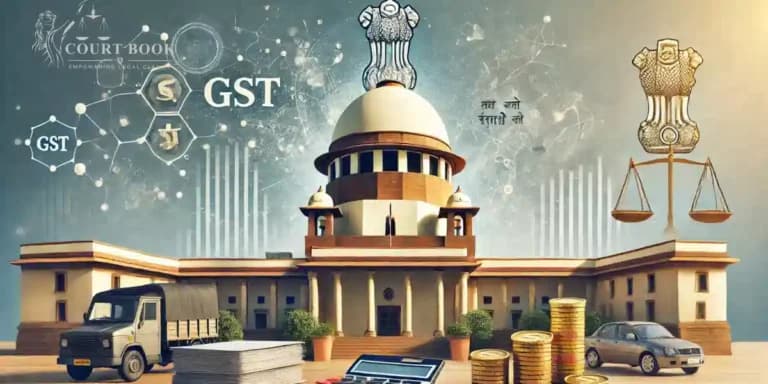The Supreme Court of India, on February 27, observed that allegations regarding tax officials pressuring assesses into paying Goods and Services Tax (GST) under the threat of arrest hold some merit. This conclusion was drawn based on data presented before the court.
A bench comprising Chief Justice of India (CJI) Sanjiv Khanna, Justice MM Sundresh, and Justice Bela Trivedi pronounced its judgment on multiple petitions that questioned the powers of arrest under the GST Act and the Customs Act. The court emphasized that if any individual feels coerced into paying GST, they have the right to seek legal remedies through a writ court. Furthermore, tax officers involved in such coercion must face departmental action.
Chief Justice of India Sanjiv Khanna, while delivering the verdict, stated that the court had examined the data supporting the claim that coercion had been used in the collection of taxes. He remarked that such practices are contrary to the law and cannot be permitted. He also referred to the Nandini Satpathy case while making this observation, reinforcing the importance of legal safeguards against undue pressure.
The ruling clarified that tax officials engaging in coercive methods should be held accountable through departmental proceedings. This decision sets a precedent that ensures tax collection is conducted lawfully, protecting taxpayers from undue pressure and reinforcing their rights. The judgment also addressed the applicability of the Bharatiya Nagarik Suraksha Sanhita (BNSS) and the Criminal Procedure Code (CrPC) provisions regarding the rights of arrested individuals.
BREAKING | Supreme Court Rules BNSS/CrPC Provisions Apply to GST and Customs Arrests
The court confirmed that these provisions apply to arrests made under the GST and Customs Acts, ensuring that all individuals are granted the legal protections they are entitled to.
The case, Radhika Agarwal v. Union of India and Ors., W.P.(Crl.) No. 336/2018, and related matters played a critical role in highlighting these concerns. The judgment is expected to provide further clarity on the extent of tax officials' powers and reinforce taxpayer rights.
The Supreme Court’s acknowledgment of coercion allegations is a significant development in tax law enforcement. By reaffirming taxpayer rights and ensuring departmental accountability for coercive practices, the ruling strengthens confidence in legal protections. The complete judgment will be available once officially uploaded.
Case Title: Radhika Agarwal v. Union of India and Ors., W.P.(Crl.) No. 336/2018 (and connected matters)















